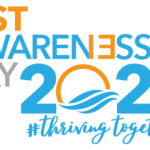Sarcoma is a rare form of cancer that affects the bones, connective tissues, and soft tissues of the body. Bone cancer, which is closely associated with sarcoma, specifically refers to the abnormal growth of cells within the bones. Despite their rarity, both sarcoma and bone cancer can have a significant impact on individuals and their families. In this blog post, we aim to shed light on these conditions, their symptoms, risk factors, and the importance of raising awareness.
What is Sarcoma?
Sarcoma is a type of cancer that originates in the body’s supportive tissues, including bones, muscles, fat, blood vessels, and nerves. It accounts for approximately 1% of all adult cancers and about 20% of childhood cancers. Sarcomas can be classified into two main groups: soft tissue sarcomas and bone sarcomas. Soft tissue sarcomas develop in the body’s soft tissues, while bone sarcomas specifically affect the bones.
Understanding Bone Cancer
Bone cancer, as the name suggests, refers to cancer that originates in the bones. There are different types of bone cancer, including osteosarcoma, Ewing sarcoma, and chondrosarcoma. Osteosarcoma is the most common form of bone cancer and is typically found in children and young adults.
Symptoms and Diagnosis
The symptoms of sarcoma and bone cancer can vary depending on the location and stage of the cancer. Common signs to watch for include persistent pain in the affected area, swelling, tenderness, unexplained fractures, fatigue, and weight loss. If you experience any of these symptoms, it is important to consult a healthcare professional for further evaluation. Early diagnosis plays a crucial role in the successful treatment of these conditions.
Risk Factors
While the exact causes of sarcoma and bone cancer are still unknown, several risk factors have been identified. These include inherited genetic conditions, previous radiation therapy, certain bone diseases, exposure to certain chemicals, and a family history of bone cancer. However, it is important to note that having one or more risk factors does not necessarily mean a person will develop sarcoma or bone cancer.
Treatment Options
The treatment for sarcoma and bone cancer depends on various factors, such as the type and stage of the cancer, as well as the patient’s overall health. Common treatment options include surgery, radiation therapy, chemotherapy, targeted therapy, and immunotherapy. In some cases, a combination of these approaches may be used to achieve the best possible outcome.
Importance of Awareness
Raising awareness about sarcoma and bone cancer is crucial for several reasons. Firstly, these conditions are relatively rare, which can result in delayed or misdiagnosis. By increasing public knowledge, healthcare professionals may be more likely to consider sarcoma or bone cancer as a possibility, leading to earlier detection and treatment. Secondly, awareness efforts can encourage individuals to seek medical attention if they experience any suspicious symptoms, potentially saving lives. Finally, increasing awareness can also contribute to the advancement of research, funding, and support for individuals and families affected by sarcoma and bone cancer.
Sarcoma and bone cancer are rare but serious conditions that require attention and awareness. By understanding the symptoms, risk factors, and available treatment options, individuals can take proactive steps towards early detection and effective treatment. It is crucial to support initiatives that raise awareness about these conditions to improve diagnosis rates, promote research, and provide support to those affected. Together, we can make a difference in the lives of individuals battling sarcoma and bone cancer.





